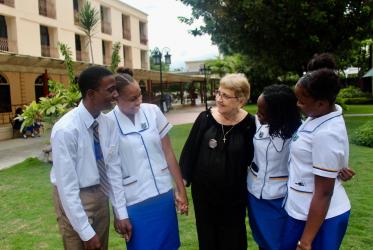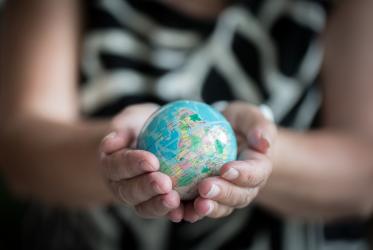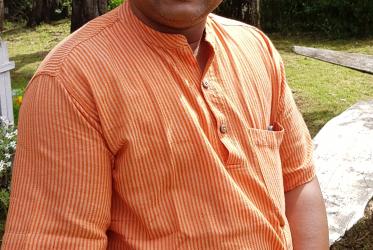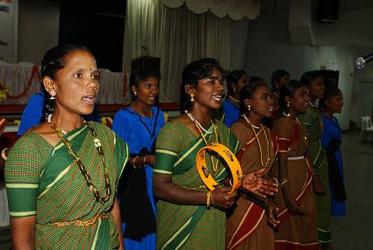Displaying 1 - 9 of 9
23 October 2020
“If this is the ecumenical movement I want to be in!”
11 October 2018
Linette Vassel: “We need to examine power more deeply as women”
03 October 2018
Dr Samuel George: “Ensure all are included"
12 June 2018
Determined to make a difference
18 April 2018
"We have our work cut out for us"
10 August 2017
Winners of WCC photo contest announced
09 May 2016
Churches celebrate Week of Prayer for Christian Unity
23 January 2013






